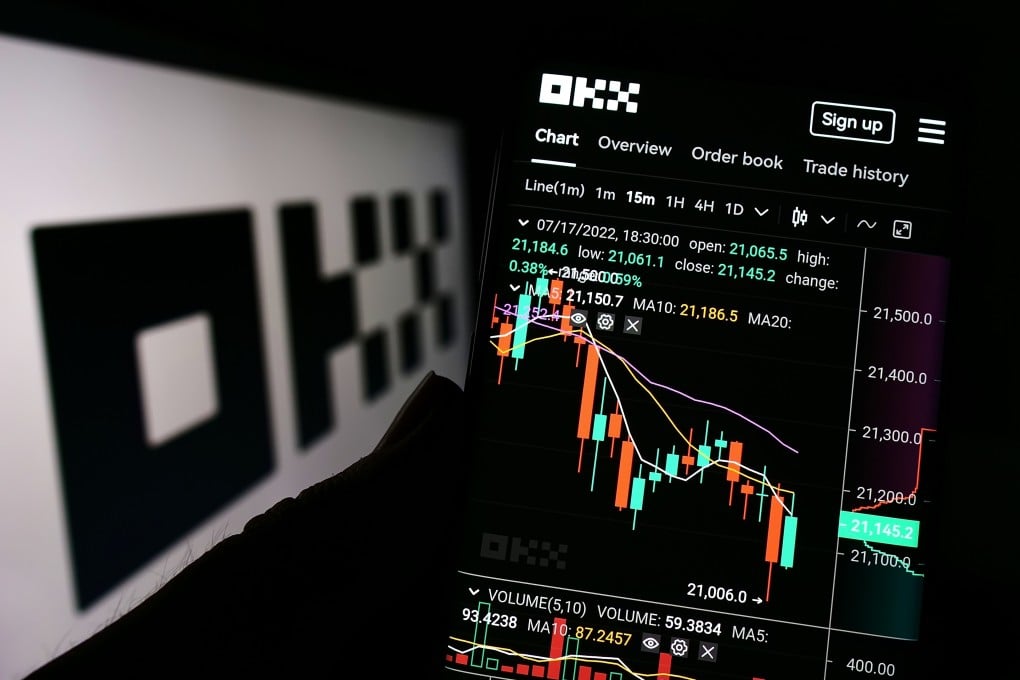Crypto giant OKX applies for Hong Kong licence, becoming first major exchange to file under city’s virtual asset scheme
- OKX Hong Kong FinTech submitted its application last week, a day after Futu-affiliated PantherTrade, becoming the seventh exchange to do so
- Applicants to the city’s virtual asset licensing scheme, a long and costly process, were previously only small, local exchanges

OKX, the world’s third-largest cryptocurrency exchange by 24-hour trading volume, has officially applied for a virtual asset trading platform (VATP) licence under its Hong Kong branch, becoming the first major industry player to apply under a new legal regime aimed at transforming the city into a regional crypto hub.
The exchange’s local subsidiary OKX Hong Kong FinTech submitted the application on November 16, according to the Securities and Futures Commission’s (SFC) website, becoming the seventh company to formally apply, eight months after the branch was established. PantherTrade, an exchange with apparent ties to Futu Holdings, submitted its application the day before OKX.
“We look forward to working closely with the SFC to advance OKX Hong Kong’s application while promoting the city as a global-leading virtual asset hub,” said OKX global chief commercial officer Lennix Lai in a statement on Tuesday.
OKX was the largest of a handful of companies that expressed interest in pursuing a VATP licence after the new legal regime was announced in late 2022. The new SFC rules went into effect in June with a one-year grace period, requiring exchanges serving customers in the city to be licensed but allowing licensed exchanges for the first time to serve retail investors.
